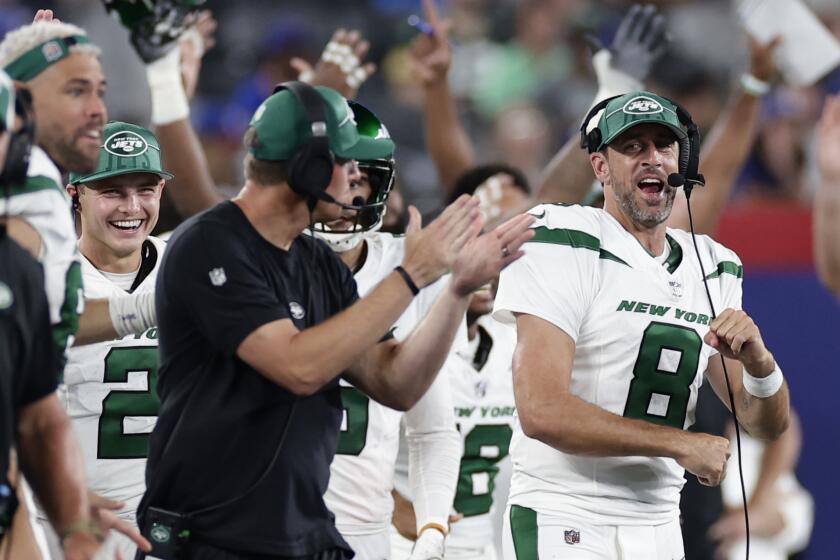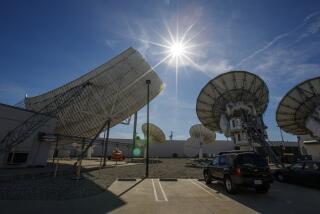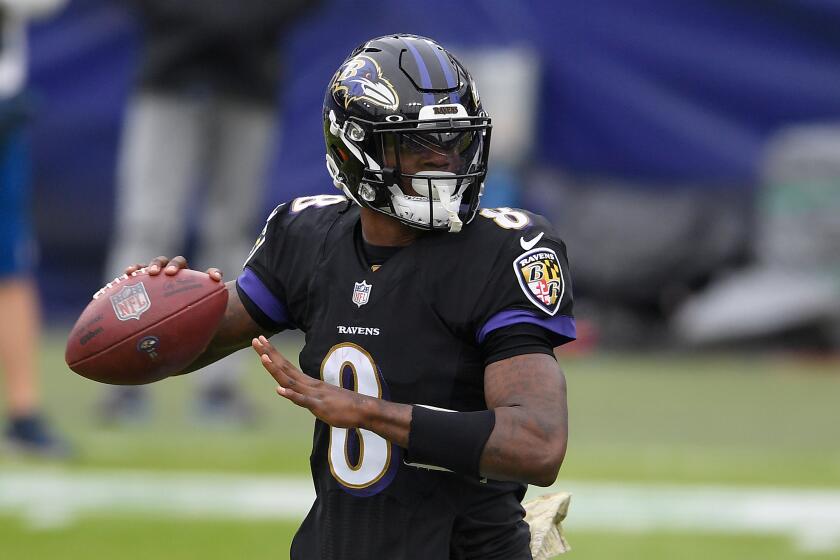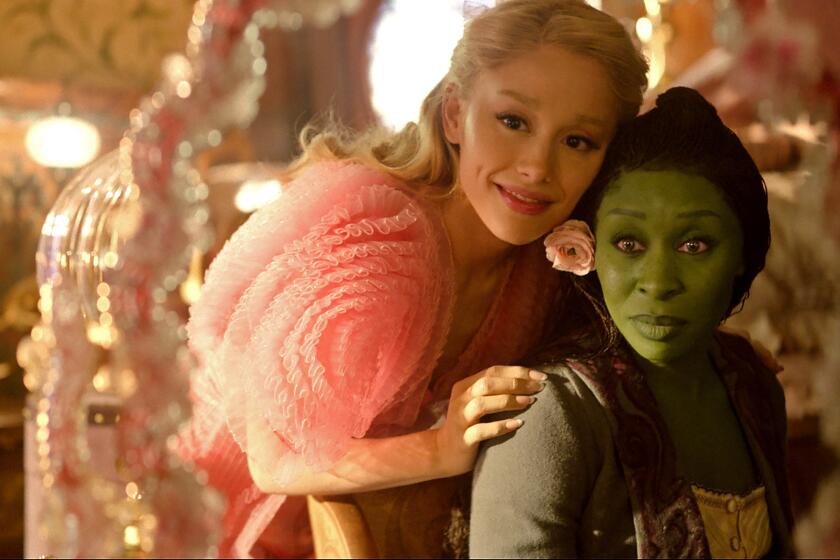Nexstar TV stations blackout on DirecTV ends after 76 days
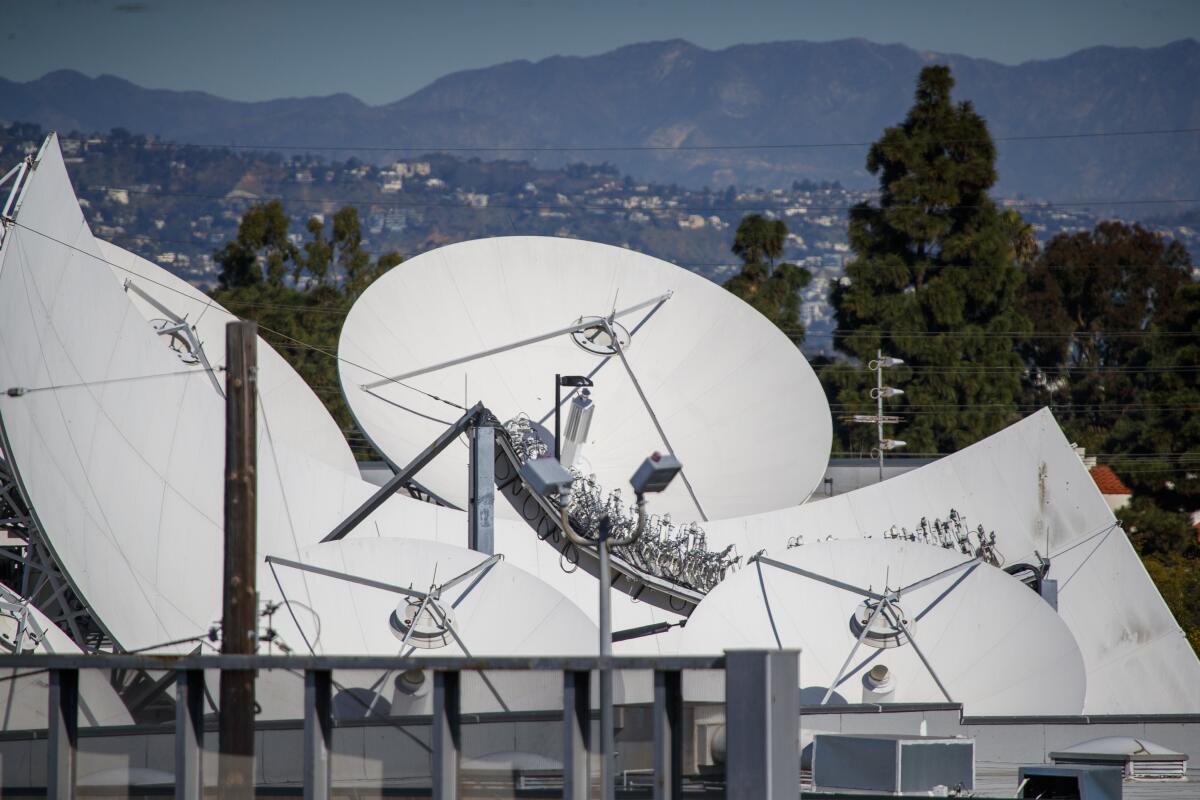
Television giants DirecTV and Nexstar Media Group reached a new distribution deal Monday after months of tensions — ending a bitter blackout that lasted 76 days.
The two sides had lifted the nationwide blackout of 159 Nexstar-owned local stations — which includes ABC, CBS, Fox, NBC and CW network affiliates — on DirecTV products, including the satellite TV service, U-verse and DirecTV Stream a day earlier amid progress in the negotiations.
Nexstar’s KTLA-TV Channel 5 also was restored. The station was swept up in the blackout for DirecTV and U-verse customers that began July 2.
The two companies announced a preliminary truce early Sunday as they faced the prospect of fuming football fans anticipating the second weekend of the NFL season.
Thousands of football viewers in Indianapolis were anxious about missing their Colts play the Houston Texans on Fox. In Fresno and Buffalo, N.Y., some viewers would have lacked access to CBS’ coverage of the Buffalo Bills and Las Vegas Raiders game. And some fans in Sacramento, San Diego and Honolulu would have missed seeing the Rams take on the San Francisco 49ers in Los Angeles on Fox affiliates.
On Monday, the companies announced a new multi-year deal had been signed.
“DirecTV and Nexstar greatly appreciate the patience of their subscribers and viewers during this negotiation,” Nexstar and DirecTV said in their joint statement.
Financial terms were not released.
Millions of DirecTV customers lost access to Nexstar channels after the two companies failed to agree to a new distribution contract by a Sunday night deadline.
Nexstar, based in Irving, Texas, is the nation’s largest TV station group. It acquired the Tribune Media station portfolio, including KTLA and WGN, nearly five years ago.
Late last month, longtime Fox television executive Mike Biard joined Nexstar as its president and chief operating officer and supported the negotiations, which were led by Dana Zimmer, Nexstar’s distribution president. DirecTV’s Chief Content Officer Robert Thun and Senior Vice President Linda Burakoff handled negotiations for the satellite TV provider.
The cable news network NewsNation had been part of the outage as well as 27 television stations that Nexstar manages but are owned by Mission Broadcasting and White Knight Broadcasting, which have been unavailable on DirecTV’s satellite, streaming and internet services since last October. The new pact did not include those stations.
In July, after months of back-and-forth, DirecTV was forced to remove the Nexstar channels from its satellite TV service as well as DirecTV Stream and U-verse because the previous contract had expired and El Segundo-based company no longer had legal authorization to rebroadcast Nexstar station signals. DirecTV teams worked Sunday to restore the signals after Nexstar granted its permission.
“Unfortunately, over the past decade-plus access to your programming has become a battleground for networks and stations to try to drive up higher rates,” DirecTV Chief Executive Bill Morrow said Monday in a statement. “We understand you have a choice among your TV providers and appreciate your ongoing loyalty during this renewal.”
The blackout ended Monday with a new distribution deal, hours before the New York Jets-Buffalo Bills ‘Monday Night Football’ game on ESPN.
The resolution comes a week after the Walt Disney Co. and Charter Communications reached a new agreement, ending a high-profile 10-day blackout of Disney channels, including ESPN and KABC-TV Channel 7 in Los Angeles, on Charter Spectrum’s television service. That blackout interrupted millions of fans’ viewing of the US Open tennis championships and college football on ESPN.
Channel blackouts have become increasingly common in recent years as TV channel distributors, including DirecTV, Charter Spectrum, Cox Cable and Comcast‘s Xfinity, struggle to hold the line on costs rather than pass stiff increases along to customers in the form of higher bills.
DirecTV and other pay-TV distributors have lost millions of customers to cable cord-cutting in the last decade and they do not want to encourage additional subscribers to flee.
“The video ecosystem is broken,” Charter Communications Chief Executive Christopher Winfrey told analysts earlier this month.
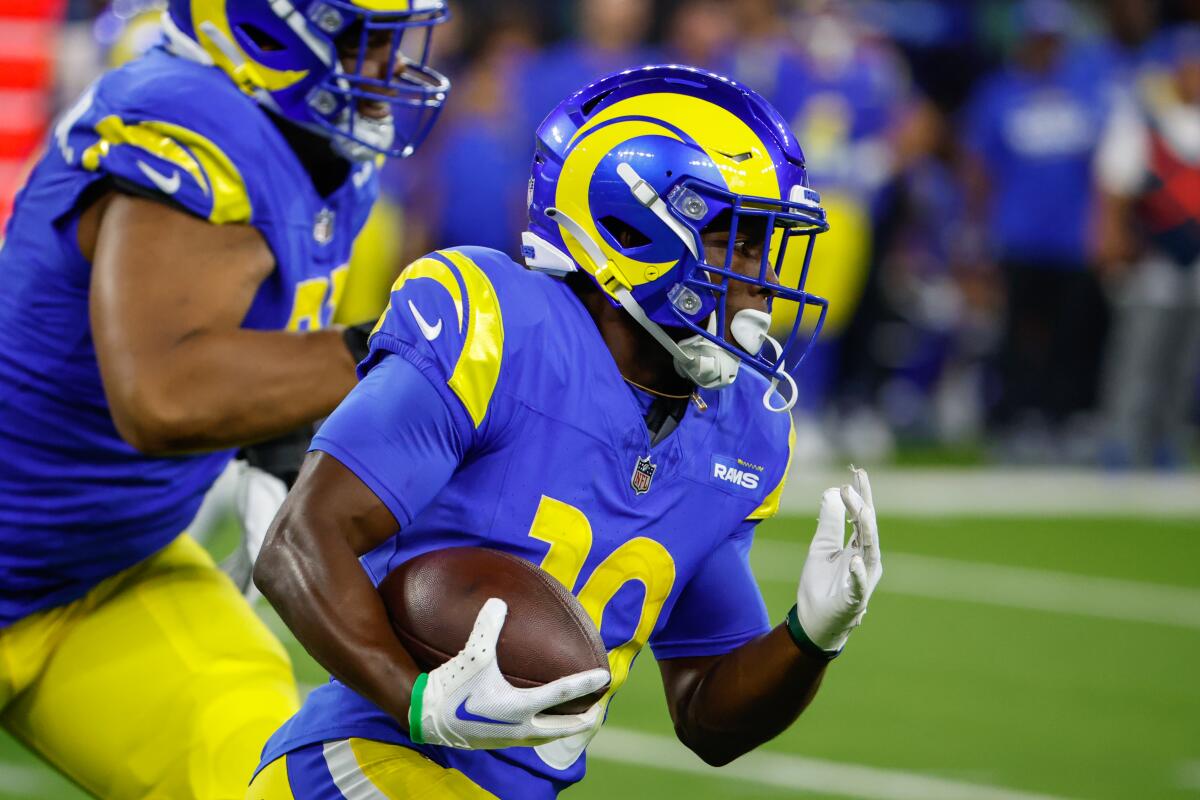
Such concerns prompted Charter to initially balk at Disney’s fee increases during their distribution contract negotiations late last month.
That blackout on Spectrum — which affected millions of customers in New York and Los Angeles — was resolved after Disney compromised by allowing Charter to drop eight Disney cable channels, including Freeform, from its lineup.
TV station owners, including Nexstar, have been seeking fee increases as the cost of programming — particularly NFL football and other sports — skyrocket. Programmers also are grappling with declining ratings and a lower penetration of pay-TV homes, which result in less revenue produced by stations. The television advertising market also has shown signs of weakness.
Broadcast TV ratings have declined nearly 50% from a decade ago.
The carriage fee dispute means that millions of Spectrum customers will go without “Jeopardy!,” U.S. Open tennis coverage and football on ESPN. The cutoff coincided with the start of a highly anticipated college football game between Utah and Florida.
The troubled economics prompted Disney Chief Executive Bob Iger to suggest that Disney might sell its ABC television network and owned stations.
Late last week, news outlets including The Times reported that Disney has received preliminary interest from potential buyers, including Nexstar.
Disney sought to dampen speculation that it was close to a deal.
“While we are open to considering a variety of strategic options for our linear businesses, at this time the Walt Disney Co. has made no decision with respect to the divestiture of ABC or any other property,” Disney said in a statement Thursday.
More to Read
Inside the business of entertainment
The Wide Shot brings you news, analysis and insights on everything from streaming wars to production — and what it all means for the future.
You may occasionally receive promotional content from the Los Angeles Times.

